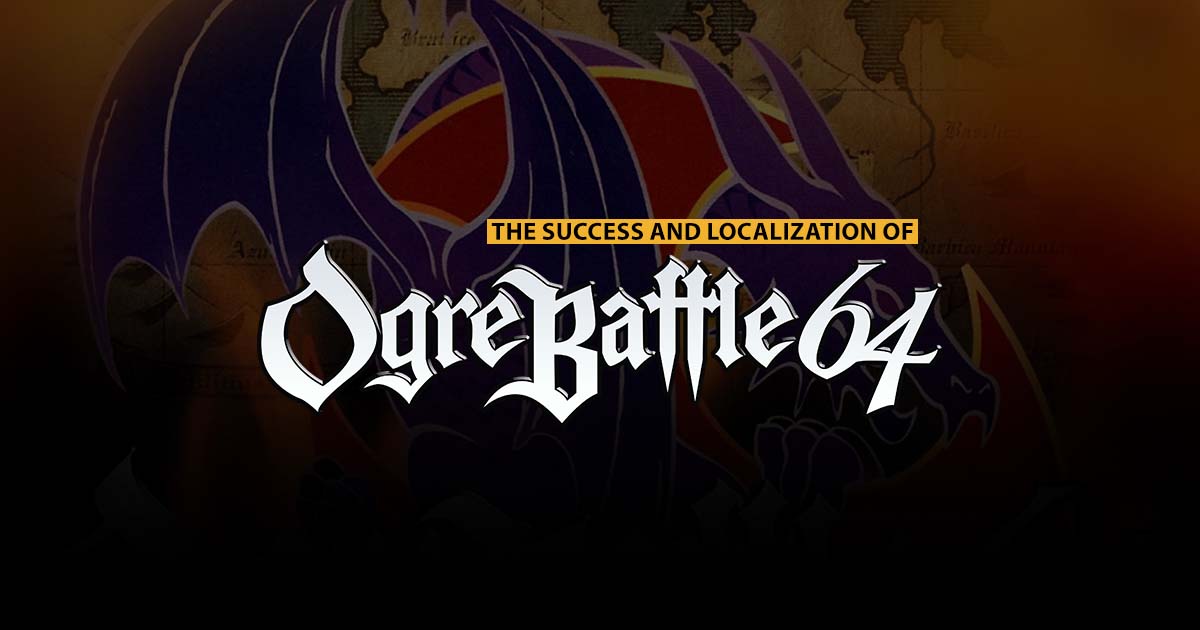Lost in translation: 6 times localization errors became a meme

What Languages Should I Consider Localizing My Steam Game to in 2022?
05/22/2022
What Languages Should I Localize my Web3 Game Into?
06/28/2022Game localization, particularly for independent developers and publishers, can be seen as an expensive endeavor. However, trying to save money by using machine translation or by asking inexperienced translators, especially sourcing work from friends or the community, could end up costing valuable time, resources, and money. As a number of professional translators will attest, sometimes the energy of cleaning up a bad translation is greater than just starting over from scratch. Due to budget and time constraints, some may find themselves in a position where their two options are to either cancel languages or go live with problematic translations. Below are 6 examples where the publisher probably should have chosen the former option.
Then again, if they had, we wouldn’t have these classic memes that have now become a part of internet culture.
“All Your Are Base Belong to Us.” Zero Wing (1991)
If you have lived through the early age of internet memes, this quote needs no introduction. For anyone younger, the game from the cover of this blog post is a quite successful Japanese shoot ’em up game from the early 90s that became the subject of some unfortunate English localization choices. The developers surely didn’t expect that their game would become one of the first viral memes.
“Welcome to die!” X-Men (1992)
This arcade game from 1992 was a classic local co-op experience featuring the Marvel heroes. What made it even more popular was a boss sequence featuring Magneto introducing himself to the player with, well, not exactly the most convincing evil genius quote. What makes it even funnier is that the sentence was recorded by a voice-over artist without making any adjustments!
If this wasn’t enough, the error became so popular that Capcom ended up quoting it again in multiple future X-Men games.
“You spoony bard!” Final Fantasy IV (1991)
Remember the 90s, when media and governments in the western world were convinced that video games were anti-social tools deliberately developed to corrupt children? As a result, many games had to apply self-censorship and tone down their language to avoid adult ratings. Some of these adjustments ended up being quite silly.
Such is the case with the following sequence from Final Fantasy IV. While not an error per se, the original Japanese text should have been translated into “you bastard”, but the team decided to opt for a child-friendly curse that ended up making this whole boss encounter quite laughable.
“A winner is you”! Pro Wrestling (1987)
Fighting games for the Nintendo Entertainment System were famous for their incredibly harsh difficulty given by unfair AI and poor control optimization. After all, this was the era of 2 buttons controllers and 8-bit graphics. So, imagine how it feels to go through the hardship of each fight just to be welcomed by this message.
“I am Error.” Zelda II: The Adventure of Link (1987)
Word play is among the most difficult aspects in translation, as not only is it easy for anyone with a less than perfect knowledge of the original language to miss the original meaning, but double-meaning of words and phrases are often simply not translatable and require the surrounding text to be rewritten through a process called transcreation. In Zelda II: The Adventure of Link, two characters, named Bagu and Erā in the original Japanese version, suffers from word player localization gone wrong.
The two names were intentional misspellings that, read by a Japanese reader, would sound like the English words “bug” and “error”, acting as a carefully crafted homage to game quality assurance testing. The problem is that the Japanese to English translators didn’t catch this, and ended up translating only one of the two names, which caused players to create endless conspiracy theories related to the origin of the “I am Error” dialogue line.
“You’re winner!” – Big Rigs: Over the Road Racing (2003)
What do a truck racing game named Big Rigs and the movie The Room have in common? They were both released in 2003, and they both achieved cult classic status through an appreciation of their numerous flaws.
The daring gamers who tour the circuits of Big Rigs are met with hilarious issues, such as physics that allow trucks to travel faster uphill than downhill, missing collisions that allow players to pass through every object, or AI opponents so advanced that it made competing trucks never leave the starting line. To top it all off, upon reaching the finishing line the players are met with the infamous quote “You’re winner!”. While this is certainly not the most egregious translation error, it has earned its place in our list of 6 due to the notoriety of the title and the numerous memes created by its “fans.”
Although becoming a meme can sometimes bring you success, more often than not poor translations are met with criticism and poor reviews that are not going to help you sell more units of your game. That is why it is so important to be considerate when budgeting for your localization, as it’s probably better to save money by reducing the number of languages to localize into than spending it all on cheap translations.
At GameScribes, we pride ourselves on having a very thorough vetting process for our linguists and our practices and management ensure that your target audience will not laugh at you. If you wish to know more about our localization process and receive a free consultation, get in touch with us.






